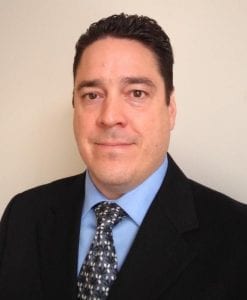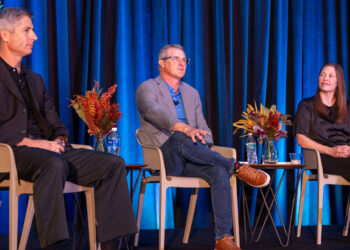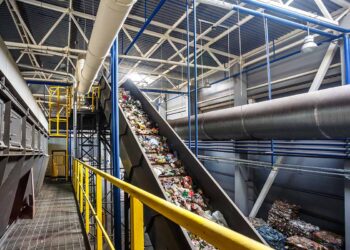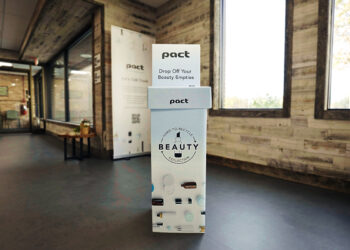Sustainable Electronics Recycling International (SERI) would like to thank the outgoing R2 Technical Advisory Committee (TAC) members for their important role in shaping the R2 Standard to meet the needs of an evolving and growing industry. Their expertise, insight and commitment to secure and sustainable management of electronics will have a global impact for years to come.

The R2v3 revision process began six years ago, with a public call for volunteers and the formation of a new R2 TAC in June 2015. The TAC consisted of a wide variety of stakeholders from across the electronics reuse and recycling industries with 54 different TAC participants over the six-year period. During that time, TAC members devoted more than 5,100 volunteer hours to address more than 900 challenging and complex issues, many of which were submitted by customers, industry members and the public.
The role of the TAC is to discuss and draft changes to the R2 Standard to ensure that it continues to meet the changing needs of the electronics reuse and recycling sectors. The structure of the TAC and the R2 revision process have been developed in alignment with the American National Standards Institute (ANSI) Essential Requirements to ensure due process in the standard-setting process. This formalized structure that the TAC operates under ensures that the diverse interests and viewpoints of all stakeholders are considered in the R2 Standard setting process, providing credibility to the Standard and the work of the TAC.
“The TAC is more than a simple working group; the TAC represents a balanced group of interested stakeholders that share the common goal of promoting sustainable electronics reuse and recycling practices,” our executive director, Corey Dehmey, recently remarked.
TAC members volunteered their time, and in addition to the regularly scheduled TAC meetings, members also participated in meetings of 16 different small groups, several multi-day, in-person meetings, as well as countless hours individually reviewing and commenting on a variety of draft documents and resources.
“The TAC has done an excellent job in representing the various stakeholder groups and effectively addressing the many challenges identified through the standard-setting process,” said Rick Goss, chair of the SERI Board of Directors. “TAC members are experts in their field. Their knowledge and experience have been instrumental in making the R2 Standard such a great success.”
SERI would like to express its sincere thanks to the following individuals and organizations for their continued support of the R2 Standard and participation on the TAC throughout the R2v3 development process:
- Aaron Blum (ERI)
- Ann Hughes (MRK Group)
- Cassie Gruber (Jabil Environmental)
- Jeff Rodgers (Direct TV/AT&T)
- Julius Hess (Regency Technologies)
- Kelley Keogh (Greeneye Partners)
- Michael Fievet (T-Mobile/Sprint)
- Paul Burck (Orion Registrars)
- Rike Sandlin (Rivervista Partners)
- Sarah Kim (E-Reuse Services)
- Scott Jones (Glacier Consulting)
- Theresa Di Marco (Best Buy)
- Tina Garner (ANAB)
A few retiring TAC members have been involved with the R2 Standard going back many years before the latest revision process:
Kelley Keogh is a well-known veteran of this industry. Kelley normalized due diligence of downstream refurbishers and recyclers when nobody knew what that was. She has been a sustainability leader in the field and a valuable contributor to the R2 Standard development as part of the R2:2013 TAC. Kelley’s experience, wisdom, and expertise have been incredibly valuable to SERI and we look forward to continuing to learn from Kelley’s field work.
Rike Sandlin is also a veteran of the industry and a distinguished leader. Rike broke out as one of the early adopters of R2 Certification in 2010 as the environmental, health and safety manager at Intechra, a Jackson, Miss. ITAD company that was later acquired by Arrow. He continued as an owner of HiTech Assets and co-chaired the R2:2013 TAC. Rike has also chaired the RIOS Board of Directors and been an active leader in the Institute of Scrap Recycling Industries (ISRI). Rike has since started his own consulting business and continues to share his expertise and wisdom in the ITAD and electronics recycling industries.
Tina Garner is a pioneer of R2 since she first implemented the R2 Certification program at the ANSI-ASQ National Accreditation Board (ANAB) in 2009. With Tina’s guidance and oversight of the certification bodies, R2 Certification has grown to more than 960 facilities in 33 countries over the last 12 years. Tina has been the guiding light for SERI and for the R2 TAC along the way. She has participated in both the R2:2013 and R2v3 TACs.
Special recognition also to Darrell Hogan and Sarah Kim, who previously volunteered with the R2:2013 standard development process. Darrell has been an industry leader at AER, sharing valuable insight from the perspective as a refurbisher and recycler in the industry. Darrell also chaired the RIOS Board of Directors. Sarah has been an industry pioneer in the electronics reuse field as a Microsoft Authorized Refurbisher, RIOS Board member, and as the organizer of the annual Electronics Reuse Conference.
“The guidance and thought leadership from this group of TAC members has been such a vital aspect in the continued success of the R2 Standard and certification program,” Dehmey said. “And their dedication and commitment to the work of the TAC has resulted in significant changes and improvements that can be seen right across the industry. All TAC members should be very proud of the many positive impacts as a result of their efforts.”
The R2 TAC has been an important and independent steward of the electronics reuse and recycling industries over the past two revisions of the R2 Standard. Their volunteer work has established the standard for how the world reuses and recycles electronics in a sustainable way that preserves our natural resources, protects our environment, and protects our workers and communities. SERI is grateful for the passion and the contributions of all R2 TAC members. We wish for each to continue to be successful leaders in the journey toward zero e-waste and a sustainable circular economy for the world’s electronics.
Sean De Vries is the R2 director at Sustainable Electronics Recycling International (SERI).
The views and opinions expressed are those of the author and do not imply endorsement by Resource Recycling, Inc. If you have a subject you wish to cover in an op-ed, please send a short proposal to [email protected] for consideration.


























